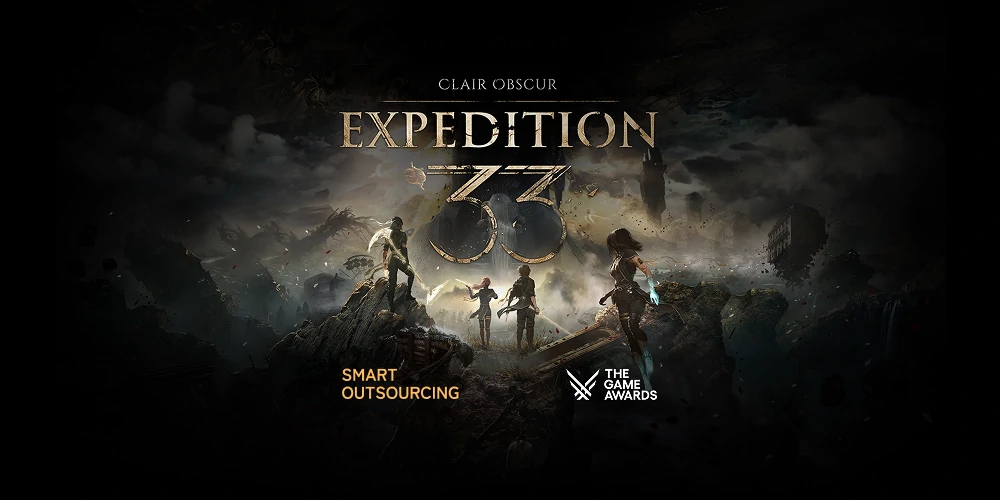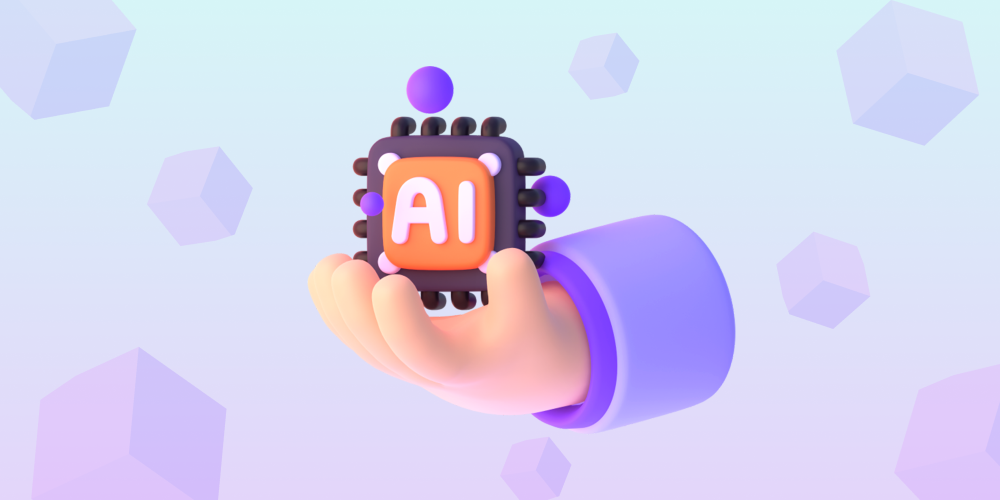KEY POINTS OF THE ARTICLE
- Web3 redefines data ownership, giving users full control of their digital identities using blockchain technology.
- Transition from Web1’s centralized systems to Web3’s decentralized, user-centric frameworks.
- Introduction of self-sovereign identities, where users manage their data without intermediaries.
- Core Web3 principles decentralization, transparency and enhanced security.
- Role of Decentralized Identifiers (DIDs) and Self-Sovereign Identity (SSI) in secure identity management.
- Integration of AI to improve Web3 data privacy, identity verification, and personalization.
- Web3 gaming enables secure ownership of in-game assets and cross-platform interoperability.
- Challenges include technical barriers, regulatory concerns and adoption hurdles.
- Future trends focus on decentralized identity solutions and user-controlled digital systems.
Introduction
Data ownership will redefine agency over ourselves in Web3. Now with blockchain technology and verifiable credentials, they can be in full control of their identity between platforms so that there is no need for an intermediary. This growth indicates an adoption of decentralized, transparent, and more easy to secure identity management systems. Web3 prevents identity thefts and data leakages by giving all controls back into the hands of users. Adoption of this new model allows for an unprecedented level of independence in user interactions and lays the foundation for a world where individuals control how and when their digital goods are managed.
Data Ownership Evolution From Web1 To Web3
As data ownership traveled through Web1 to Web3, fate is a signal that we are moving towards an era of user sovereignty and possession over their digital lives. The rather centralized nature of Web1 also meant that personal information had to be managed by platforms like social media companies which opened a can of worms when it came to privacy and security. But thanks to Web3 and blockchains, people can now use decentralized systems as secure frameworks for holding their digital IDs. This shift provides transparency, authenticity, and empowered choices for end-user data which reduces dependencies on intermediaries while also enriching overall enterprise-scale data ownership. While the concept of fully owning and controlling your digital identity has become a reality with Web3, it is changing how people use different platforms/services on the internet.
Unpacking the Move to User Control
Digital identities have been in the middle of a major shift toward greater self-sovereignty by putting users more firmly back in control over their own data ownership. We are in the throes of a new paradigm where people have leverage over their online identities. Thanks to Web3 technologies such as blockchain and decentralized systems, now users can start self-governing how their data is being utilized from different platforms. This transition was a step away from the old hierarchical model in which central entities held our information. This change of paradigm finds the balance by granting full control over digital identities to individuals, paving the way for a world where user empowerment comes first.
Infographic of the main events in the history of digital identities
Digital identities have come a long way. The advent of blockchain technology has allowed identity solutions to evolve from centralized systems that handled everything towards decentralized networks where users had a greater amount of control. For example, the first generation of identity management systems depended on single authorities (such as social media platforms) to confirm a user’s digital presence. Verifiable credentials make identity more transparent and authentic through the shift towards blockchain technology. Parallel to blockchain development, so too digital identity management evolved to include smart contracts for verified tamper-free identification. This shift was important since it resulted in a drop in third-party verification of personal information and broad acceptance across several platforms. This points us in the direction of a future in which individuals fully control and manage their digital identities.
WEB3 BASICS AND HOW IT APPLIES TO DATA OWNERSHIP
The Web3 revolutionizes data ownership, giving users a secure platform to control their digital identities. As the bedrock of Web3, blockchain technology promises that all personal information shall be transparent and unpredictable. Users interact with a wide range of platforms, removing intermediaries. By shifting this dynamic, people gain autonomy and ownership of their data for a much safer and more empowering user experience. No one can use Web3 to get transaction data. Digital identities with verifiable credentials and smart contracts to assure the credibility of information, increased robustness as compared to current systems. Web3 has the potential to completely change the way that business is done online, not just in the financial services sector but also in sectors like governance and health, where it is crucial to know who owns our data. These changes allow users to have more control over their online persona and to brand themselves in ways that were before unattainable..
What Makes Web3 Different: Decentralization, Transparency and Security
Decentralization, transparency, and security are the pillars of Web3. In Web3, control is not centralized in the way it was on Web1 or Web2; users are decentralized. This decentralized model creates trust among parties and eradicates intermediaries from the system. Due to the benefits of blockchain technology, transparency is something that Web3 runs on. It uses cryptographic protocols as well to automate the task through them, reducing unauthorized access and fraud. Web3 puts these principles first, enabling users to be increasingly in control of their digital identities and data through a future with new capitalization models that enable people ultimate sovereignty online.
The Data Control That Blockchain Technology Offers Users
Blockchain technology offers people complete control over their digital identities, which is a radical solution to this issue. Users may own their data and maintain its security and privacy without the need for middlemen or watchdog oversight thanks to decentralized blockchain networks. Smart contracts and verifiable credentials enable users to validate their identity natively across different platforms, attracting transparency for the benefit of consumers. Here, users can share their data directly with the service provider and control what is shared – thereby decentralizing sensitive data processing in areas such as financial services, healthcare, or online service scenarios. The geek gift is composable individual control and data privacy provided through the blockchain by building a future where people own their information not you.
ON THE ROLE OF DECENTRALIZED IDENTITIES IN A WEB3 FUTURE
Web3 decentralizes identities forever when it comes to how digital entities are identified. Utilizing blockchain, the users get sole authorization of their digital identities without any intervention. It is built on a verified identity model where the very claims are true and secure across any verification context. Decentralized Identities allow the user to interact with services without giving up ownership of own data. Decentralized Identities: For user-controlled data and privacy in the web of trust Decentralized Identifiers (DIDs) and Self-Sovereign Identity (SSI): Individuals control their means of identifying themselves independently, without centralized authorities. Using decentralized identities in Web3 facilitates a more clear-cut and user-centric digital ecosystem, completely controlled by the users for their personal information.
How the work of decentralized identities (DIDs) is done
Decentralized Identities (DIDs), were a cornerstone in the Web3 era for turning traditional identity management on its head and putting self-determination of one’s digital ID back into the hands of users themselves. DIDs are backed by the blockchain and can include verifiable credentials that provide authenticity while maintaining security without central authorities. Smart contracts along with decentralized systems provide the user to maintain their information of identity across different platforms in an integrated way. This enables people to communicate and browse over the internet more securely, reducing their susceptibility to identity theft or data breach. DID-based identification can therefore allow users to establish an identity without having a centralized intermediary thus improving the overall user experience and giving back data-ownership where it belongs: in the hands of individuals.
AI MEETS WEB3 TO BOOST DATA PRIVACY
Diving deep into the high seas where AI meets Web3 for the exciting future of data privacy. AI is an essential component in reinforcing the security and privacy elements of Web3 platforms. Data ownership in Web3 could also be strengthened with the help of algorithms because they provide complete power to the user who will make all decisions related to digital ID. Web3 platforms can use AI in identity management systems to innovate their existing processes for confirming the authenticity of identities and building out trust using verifiable credentials. This leads to an improved user experience while also advancing data privacy over the Internet. Web3 technologies are digitally native, and increasingly so is AI – together in tandem with these new advancements in privacy technology we see the world in a place it has never been before.
How to use AI in achieving secure data management for Web3
AI is used in Web3 to more securely and efficiently manage data whilst at the same time ensuring easy access. AI algorithms can be used to ensure authenticity, maintain digital identification, and protect private data across all platforms. AI supplements the process of identity verification and scales down data breaches resulting in better customer experience. Web3 platforms can minimize their dependence on third parties for data management by embedding AI-powered identity solutions that afford users a greater degree of autonomy and transparency. By giving people complete authority over their digital assets and information, AI can streamline the Web3 data ownership process and ultimately lead to a more secure online environment.
AI-based predictive model and personalization
AI is utilized in Web3. Data Science is not just for predicting analytics but also for delivering individualized user experiences. Advanced algorithms enable AI to reinforce identity management systems by predicting user behaviors and preferences. Our proactive approach ensures tailored services, maximizing user self-empowerment and control over their digital identities. AI-powered solutions take advantage of verifiable credentials in order to enable interoperable identity verification experiences that are cryptographically secure and tamper-proof across disparate jurisdictions. AI helps in scaling up personalized services while keeping the personal level of data with required privacy by analyzing large datasets. This power enables a new way for users to interact with the blockchain and other internet services that ultimately leads them to the period in which AI directly helps individuals navigate the digital world securely.
Web3 GAMES’ ASCENT AND DIGITAL IDENTITY
Web3 games are opening up new channels for the introduction of digital identities. These blockchain-based games give players the safe ownership and management of in-game assets. In this way, players can verify their digital identity permissions to trust and operationalize behaviors that involve crossing different game platforms. The promise of Web3 is decentralized, meaning the gamers themselves can have more control and privacy with their data (and rely less on central servers). Through smart contracts, consumers can buy and sell using a trustless system that allows users to have complete control of their ownership rights. In-game identity management solutions within virtual space can be expected to focus more on user-centric approaches.
Integrating Digital Identities into Gaming Ecosystems
With digital identities growing in importance across almost all online verticals, the incorporation of these elements into gaming ecosystems represents a major step forward for user empowerment and data ownership. Developing Web3 Games from scratch using identity management systems and blockchain technology, digital identities for players in gaming ecosystems can be instantiated. Gaming companies are leveraging verifiable credentials and decentralized platforms to improve the user experience while maintaining a secure environment for player interactions. In the end, this integration supports the same values of openness and genuineness, paving the way for a time when flawless interoperability is the norm for all gaming platforms. Gaming ecosystems may become more secure and trustworthy online by adopting identification solutions like these, which pave the way for user-controlled digital IDs.
OVERCOMING THE OBSTACLES TO Web3 DATA PRACTICES
Implementing Web3 Data Practices can often be difficult because of the technical challenges faced and due to the dilemma that arises as a result of delivering new data tools. This requires a nuanced strategic understanding of the properties inherent to a decentralized system. Regulatory and ethical concerns will undoubtedly be factors that influence how widespread Web3 data analyst Web3 data practices are, however. The balance between innovating and staying compliant is what could bring user-controlled data ownership to the functional level in the online world. By overcoming these challenges, businesses will have an opportunity to drive the creation of a new digital world that is more transparent, and trustworthy and enables consumers with better control over their identities and data.
Removing Technical Barriers and Promoting Platform Adoption
In order for user-controlled digital identities to find their way into the nuts and bolts of Web3, investing in solving technical challenges is literally key. A key challenge is maintaining interoperability between identity solutions and ecosystems on different platforms or blockchain networks. This inadequately managed area leads to problems concerning scalability, governance, and perhaps most importantly the protection of user data. Also, user adoption is very important, improving the experience by reducing friction around identity verification. The key will be the implementation of strong identity management systems that give users full control over what information they share while providing transparency and authenticity. Overcoming these technological challenges, while focused on user empowerment lays a path to that future where people have more control over their digital identities.
DISCUSSION: Regulation and Ethical Issues
Introduction as data engineer by web3 Data Engineer Today – The transition to Web3 requires scrutiny of regulatory frameworks and ethical standards. As users own more of their data, regulators are going to have a much tougher time responding with changes in policy that actually protect individuals online. Balancing innovation with user protection, and ethical considerations is the key to transparency and accountability. It needs to regulate privacy, security, and consent in decentralized ecosystems so that personal information is used with fairness and legality. Ethical considerations are broader than compliance, we must all be more thoughtful with respect to ethical responsibilities in ensuring trust and safety across Web3. We need to find the right balance of regulation and ethics for a healthy, Web3 environment that puts users first.
Web3 TRENDS DISSECTIONS
Web3 offers a paradigm shift for data ownership, partially thanks to emerging technologies like Self-Sovereign Identity (SSI) and Decentralized Identity (DID). Ultimately, we aim for a world in which self-controlled digital identities will be the new norm bringing more security and privacy with added value to state-of-the-art interoperability across all platforms. As blockchain networks progress, digital identities are likely to be fully integrated into mainstream activities such as social media or other online services. You may see predictions mentioning an increase in verifiable credentials, simplified verification processes, and networked identity systems based around decentralized networks. This vision for Web3 is one where the entire fabric of user interaction will change – and with it comes transparency, authenticity, and digital self-sovereignty as defining properties.
The Influence of New Technologies
New technologies with the likes of Self-Sovereign Identity (SSI), Decentralized Autonomous Organizations (DAOs), and DIDs or Decentralized Identifiers are changing how Web3 works as digital identities. SSI allows individuals to completely control their digital identities – there is no need for central bodies when it comes to verification. DAOs bring new governance frameworks that enable stakeholders to get involved in decision-making within blockchain-based networks. This in particular allowed DIDs to anchor “secure and representative credentials”, which can lead to a much higher amount of transparency regarding the correct identification. These technologies lead to more user control, a better ecosystem of different apps, and improved data privacy. The integration of these unique solutions as Web3 further matures would also enable and push through a paradigm change to the user-controlled digital future.
A vision for digital where the user controls their destiny
With the promise of individual agency over digital identities and personal data in a Web3 user-controlled media future. Modern identity management systems will blend effortlessly with different platforms, giving basic interoperability and allowing clients to be in control of their lives. Verifiable credentials in combination with decentralized identity solutions will certainly help to manage users’ identities better. And it is all made possible because of the blockchain technology in question. This vision is a future where users have more ownership and transparency in all the ways that data about them gets used. With smart contracts and implemented blockchain networks, all people will defend themselves from the chaos of online action through third parties. Built on the new identity rights and privacy model that this user-centric approach has brought to life helps solve problems with data ownership at its core, but also protects against fraud (identity theft, etc.) as well: For business – in fact for society – we can now trust both people from a zero knowledge perspective.
Conclusion
With Web3 coming of age, users are taking up the mantle to own their digital identities. These changes from Web1 to finally becoming Web3 depict a huge move towards decentralization, transparency, and security. Providing users with control over their data requires blockchain technology. Overlapping of AI and Web3 also leads to improved data privacy, dishing out predictive Web3 data analytics as well as offering personalized experiences. While the challenges need to be traversed and new technologies embraced, there are promising trends on this front for user-controlled digital identities in the future. No Entrepreneurs implementing Web3 should start now. Join us and create this user-centric digital future — reach out to discover the endless opportunities.

































